
Greetings Friends,
This monthly newsletter (No. 60) includes: Xmas lunch and calendars, meetings, eucalypts, quiz, plants and wildlife.
1.0 Xmas lunch and calendars
Xmas Lunch – 1200 Saturday 13 Dec at Saltwater@Bundilla
Come and join us, all welcome. Drop in for a drink or stay for lunch.
RSVP by Thursday 11 December 2025
Contact email: friendsofleepoint@gmail.com
Calendars
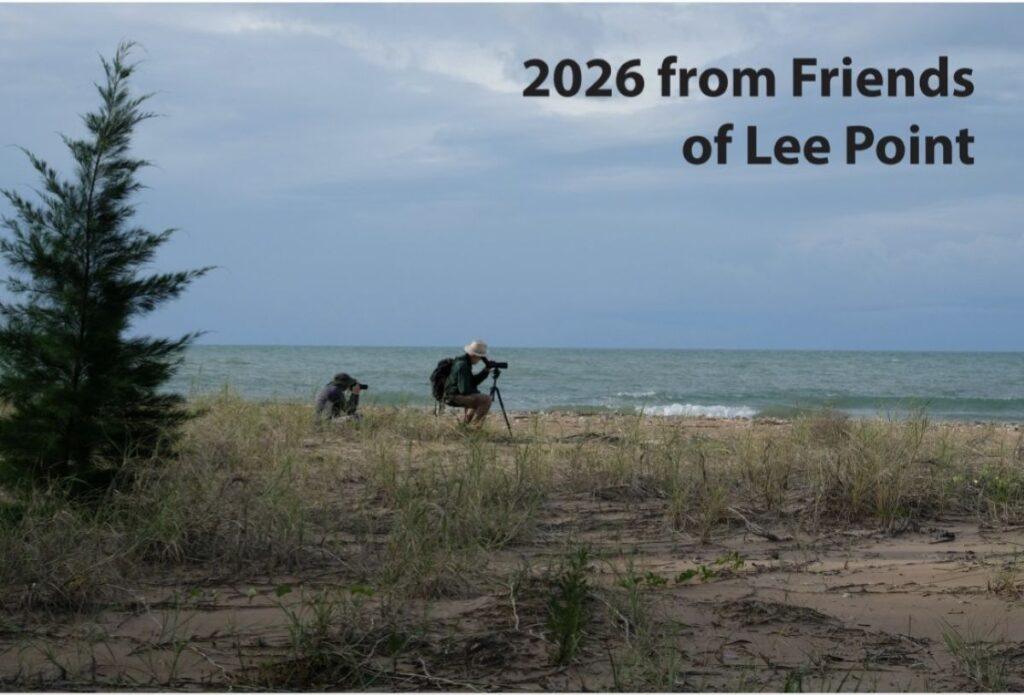
Fig 1. Front cover of 2026 FLP Calendar
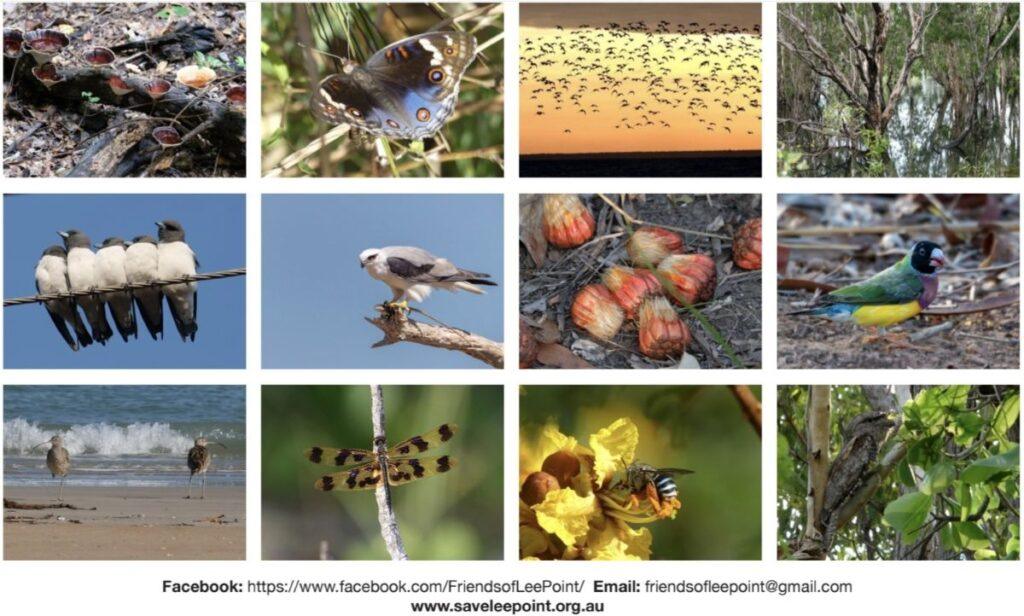
Fig 2. Back cover of 2026 FLP Calendar
The calendar also includes images of guerilla art at Lee Point. It can be purchased at Sunday Nightcliff Markets 8am-1pm or contact: friendsofleepoint@gmail.com.
Non-members $15, members $10
2.0 Meetings and other news
AGM – FLP held their AGM 5.30pm Wed 26 Nov at ECNT Space, Nightcliff. The existing (8) committee members were re-elected, details at About Us.
Lee Point Public Forum
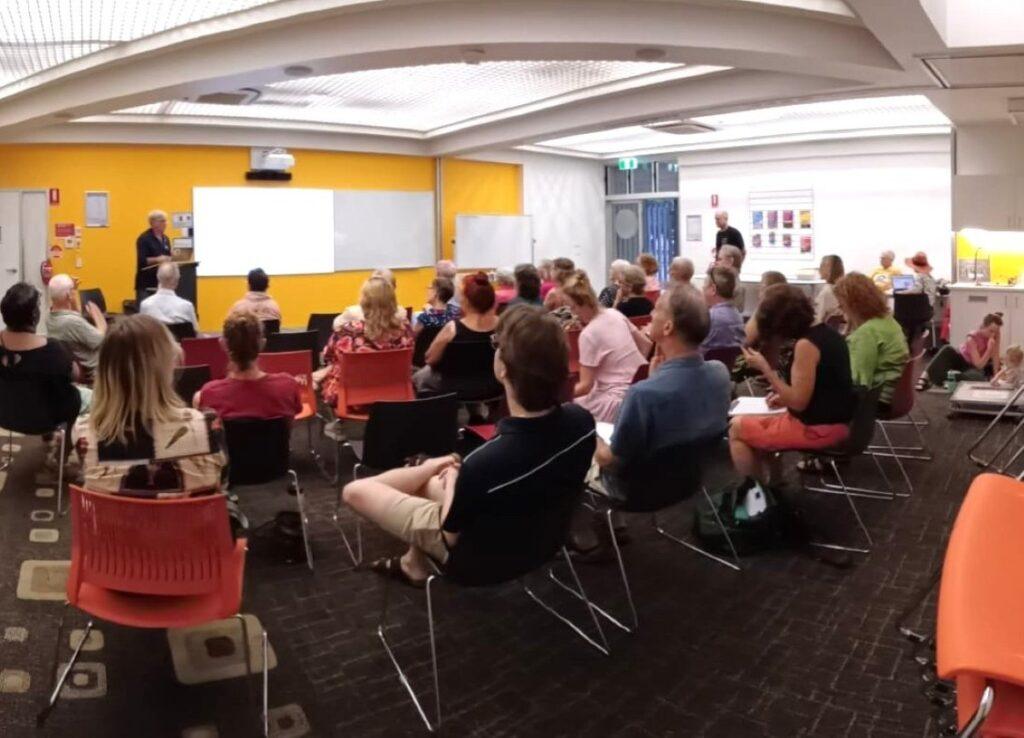
Fig 3. People at Lee Point Public Forum – 12 Nov at Casaurina Library Meeting Room
Over 30 people attended the public forum organised by FLP to hear presentations on Lee Point. Many wanted City of Darwin to take a more active role in urban planning – read more.
Councillor Julie Fraser will be asking council to undertake a much overdue cost/benefit assessment on accepting further subdivisions at Lee Point – read more.
Please sign this PETITION to City of Darwin
Greens National Conference (8-9 November, Darwin city)
FLP was invited to do a brief presentation, along with other presenters, on Lee Point at the Greens National Conference on 9 Nov. The presentation was well received by 60 people.
Tourism – the NT Government has just released a high level strategy called Visitor Economy Strategy 2032. Hopefully the next phase will include activities like birdwatching. The value of birdwatching in Darwin is largely unknown; however, it has been valued at $2.6bn per year for Australia.
3.0 Eucalypts
Eucalypts (gum trees) first appeared in Australia around 20 million years ago. Today, three-quarters of the forests/woodlands in Australia are mainly made up of eucalypts.
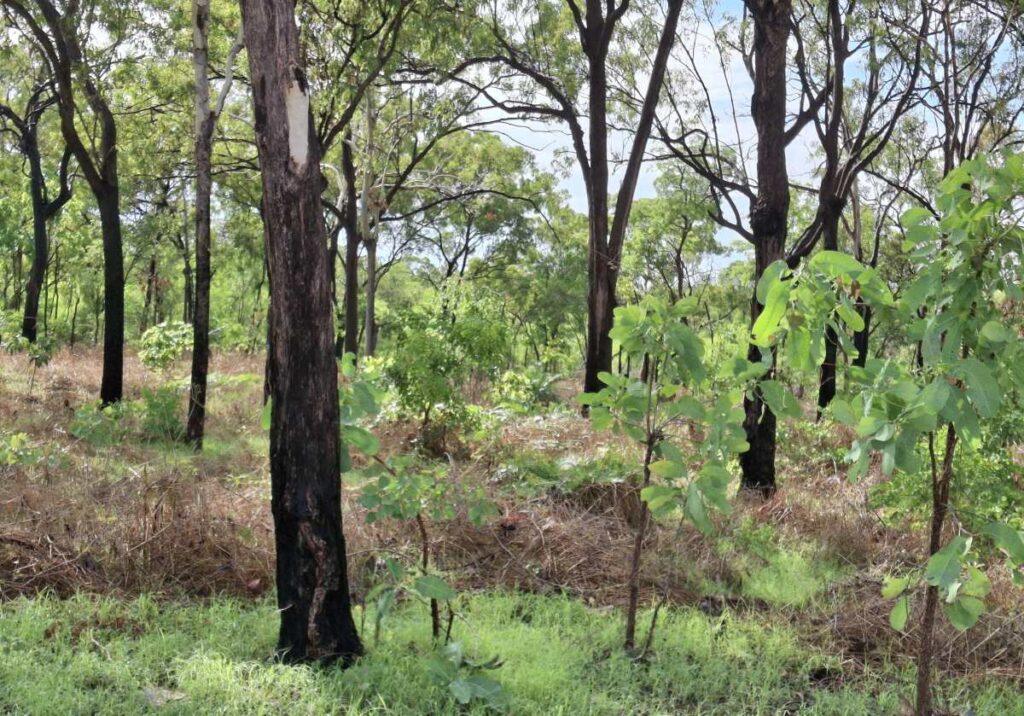
Fig 4 Old-growth forest at Lee Point/Binybara with mainly Stringybarks (Eucalyptus tetradonta) and Woollybutts (Eucalyptus miniata) – Nov 2025.
The eucalypts of Australia’s northern savanna are primarily made up of the Eucalyptus genus and Corymbia (bloodwoods) genus.
Some eucalypts to change genus
The use of DNA data has allowed scientists to classify living organisms more precisely.
Work is underway to shift some eucalypts in the Corymbia genus to a new genus called “Blackella”, commonly known as Paper-fruited Bloodwoods. Ghost Gum and Cabbage Gum get described as Paper-fruited Bloodwoods.
Splitting Blackella off from Corymbia is likely to raise some eyebrows. There is still some disagreement amongst botanists on whether the Corymbia genus (created 1995) should have been split off from the Eucalytus genus (created 1788).
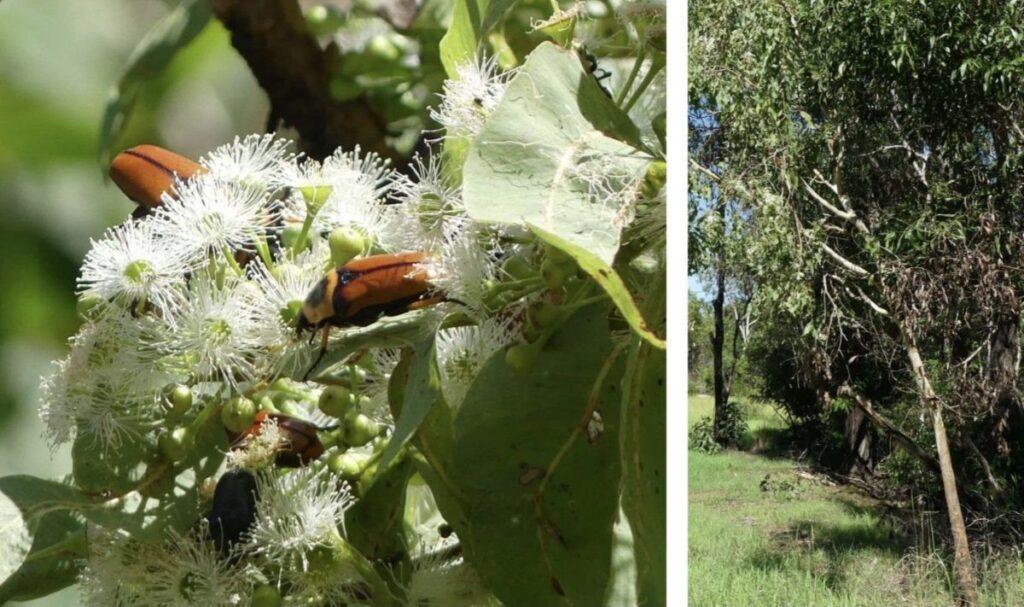
Fig 5. Paper-fruited bloodwood (Blackella spp) near Lee Point with Chafer Beetles (Dilochrosis brownii)
If the eucalypt has an easily crushed wooden fruit (gum nut), white powdery bark on the upper trunk with scaling bark at the base of the trunk, it is probably a Paper-fruited Bloodwood and belongs to the new Blackella genus.
4.0 Quiz
Large numbers of migratory shorebirds can be seen at Lee Point this time of year.
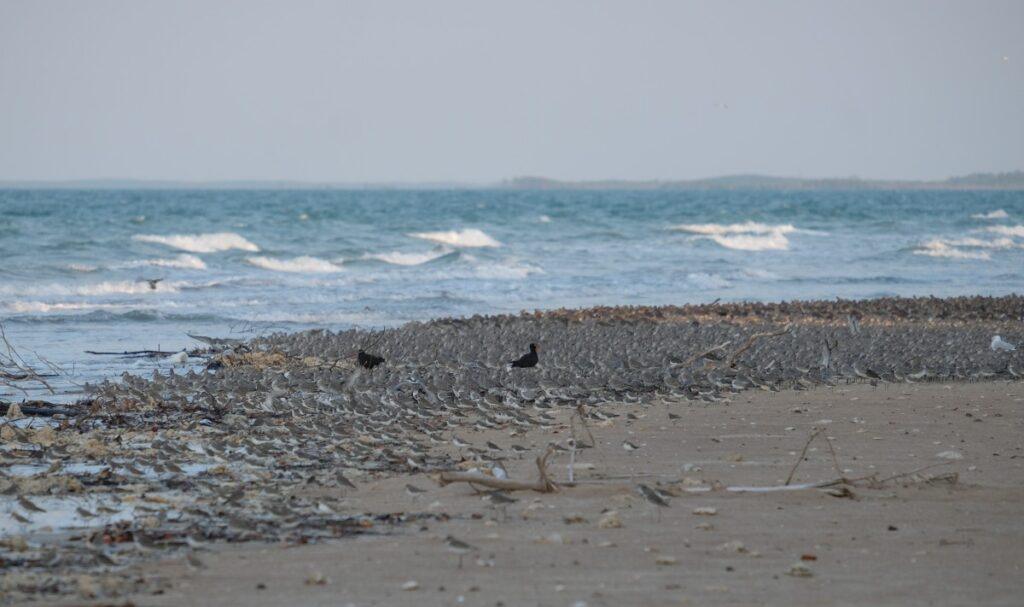
Fig 6. Lee Point Beach – Nov 2025
When do they sleep and why do they prefer to be in a large group? Answers at the end.
5.0 Plants and Wildlife
Cyclone Fina (Cat 3) passed by ~50km from Darwin on Saturday 22 Nov. There was only minor damage to the old-growth forest at Lee Point.
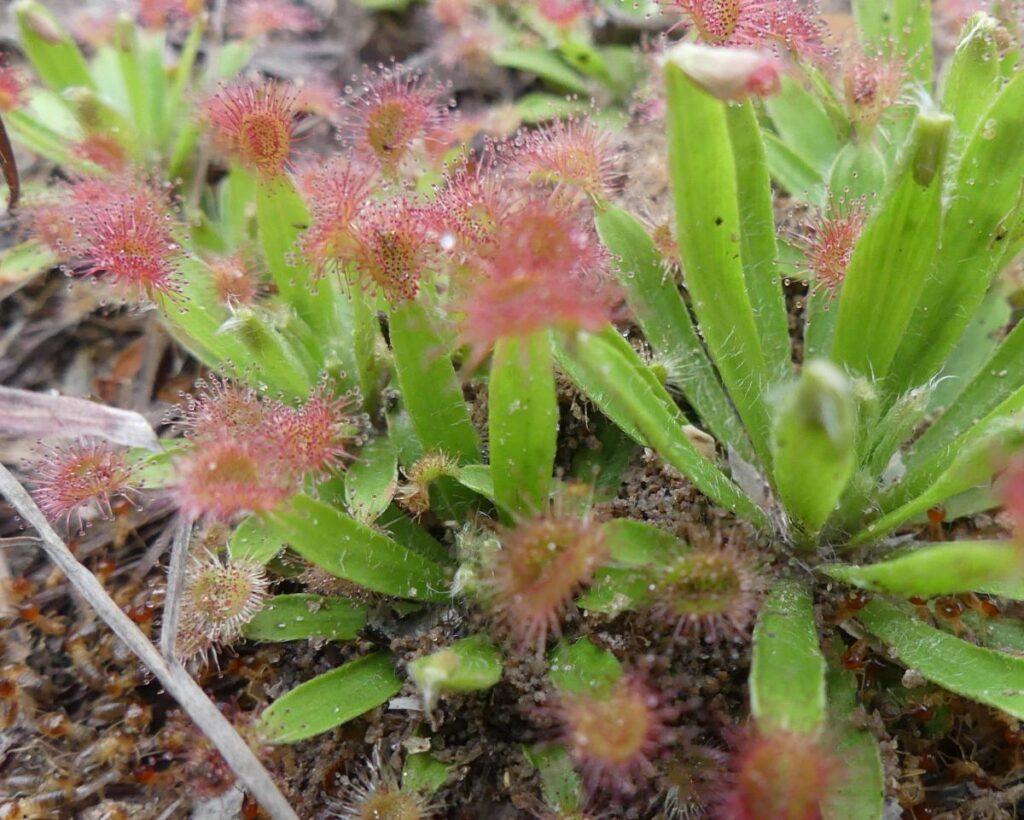
Fig 7. Sundew
Favourite food: Insects
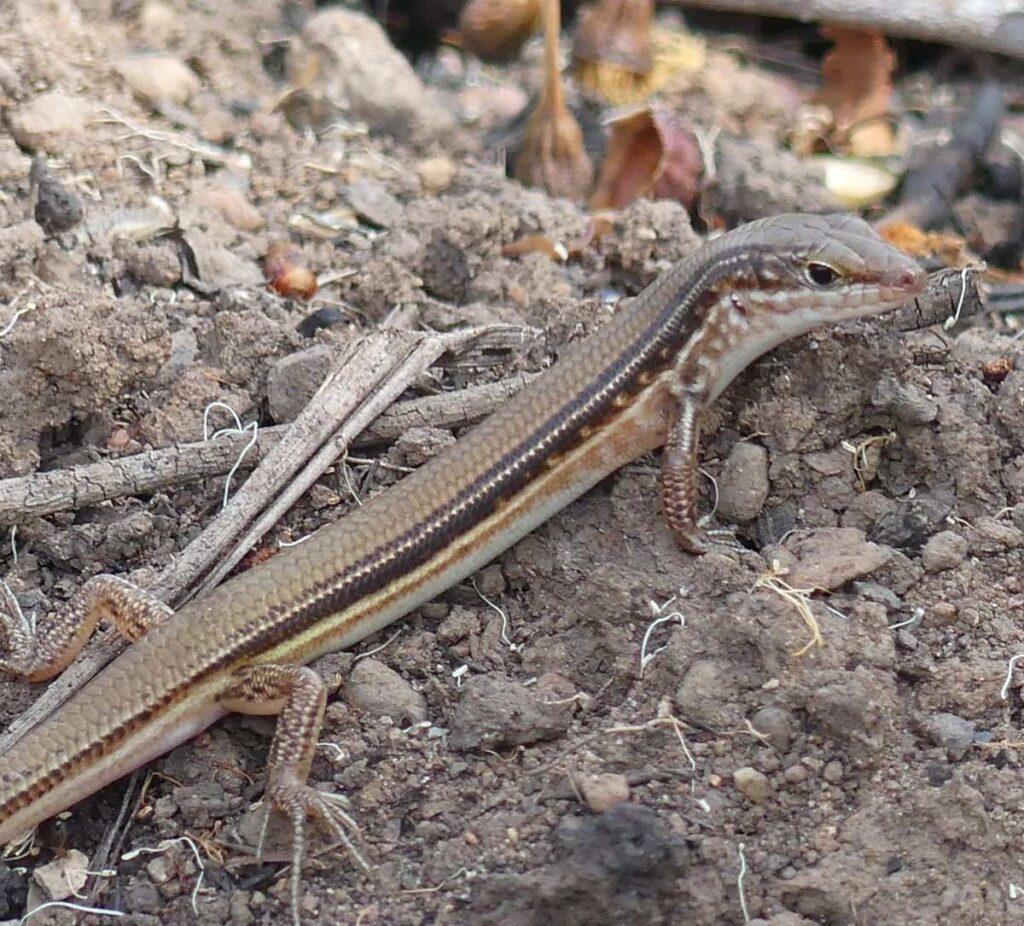
Fig 8. Striped Skink
Favourite food: Insects
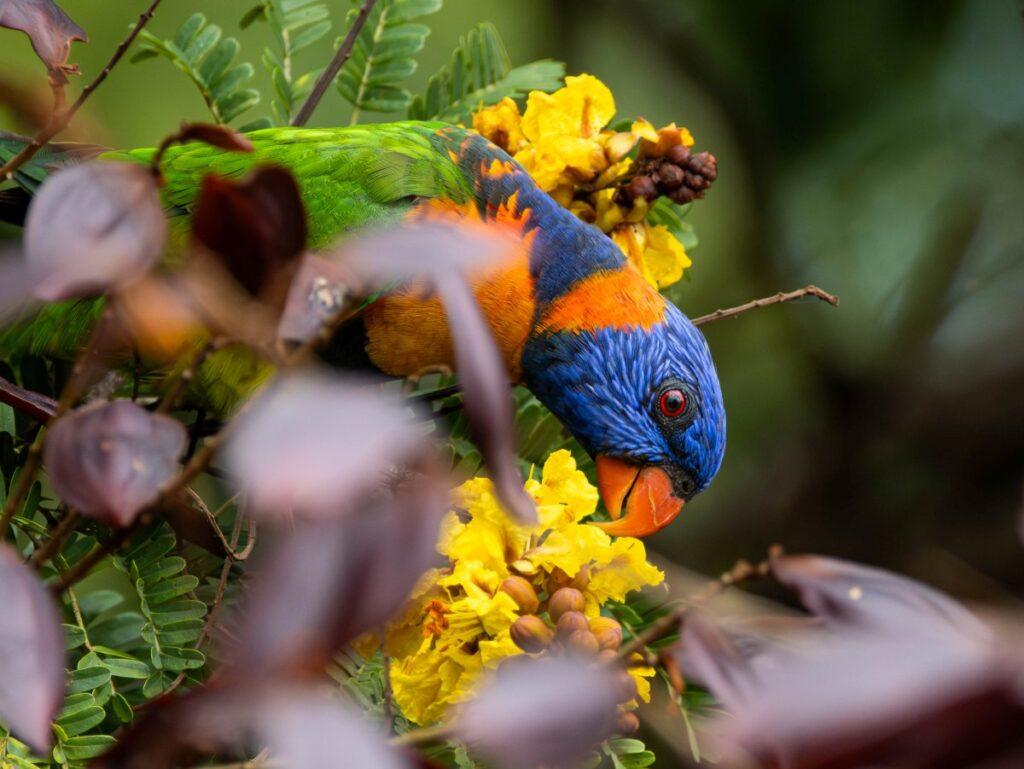
Fig 9. Varied Lorikeet – Mitch 10 Nov
Favourite food: Nectar
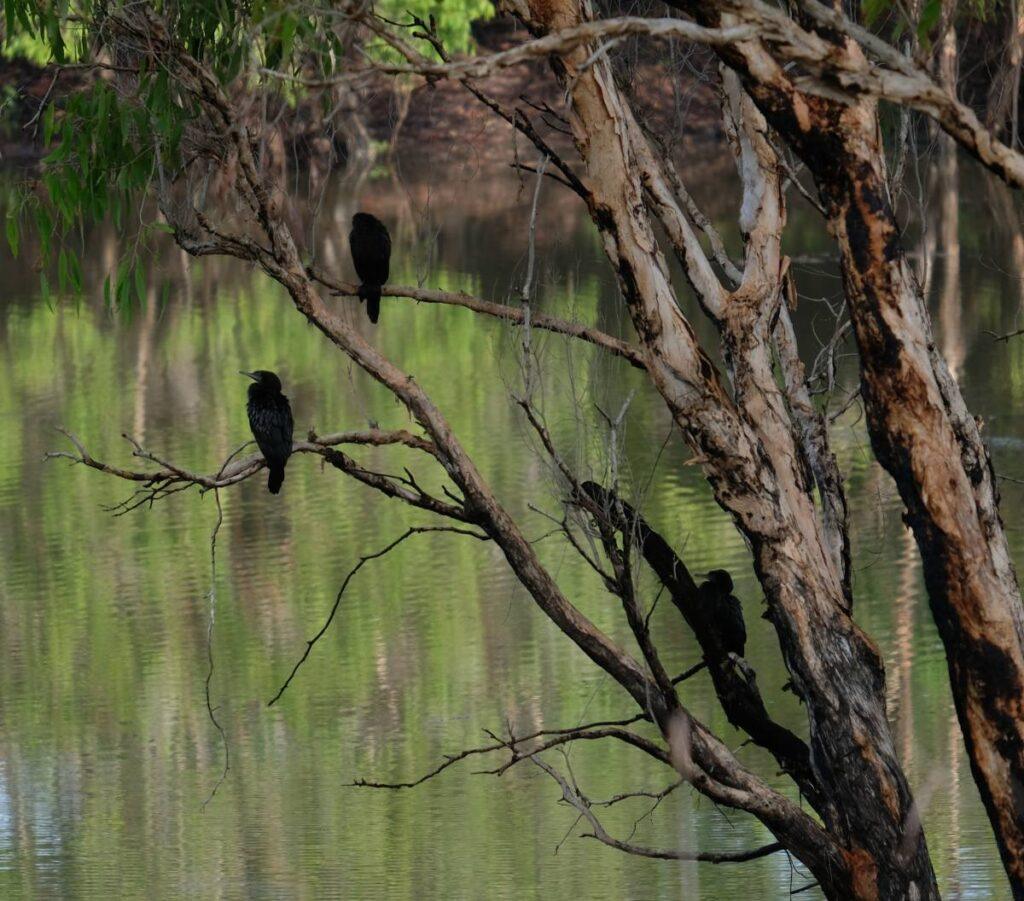
Fig 10. Cormorants on dam
Favourite food: Fish
Wilderness Walks
Wilderness Walks record between 30-50 bird species, refer ebird for latest sightings. Please check Friends of Lee Point Facebook for walk times.
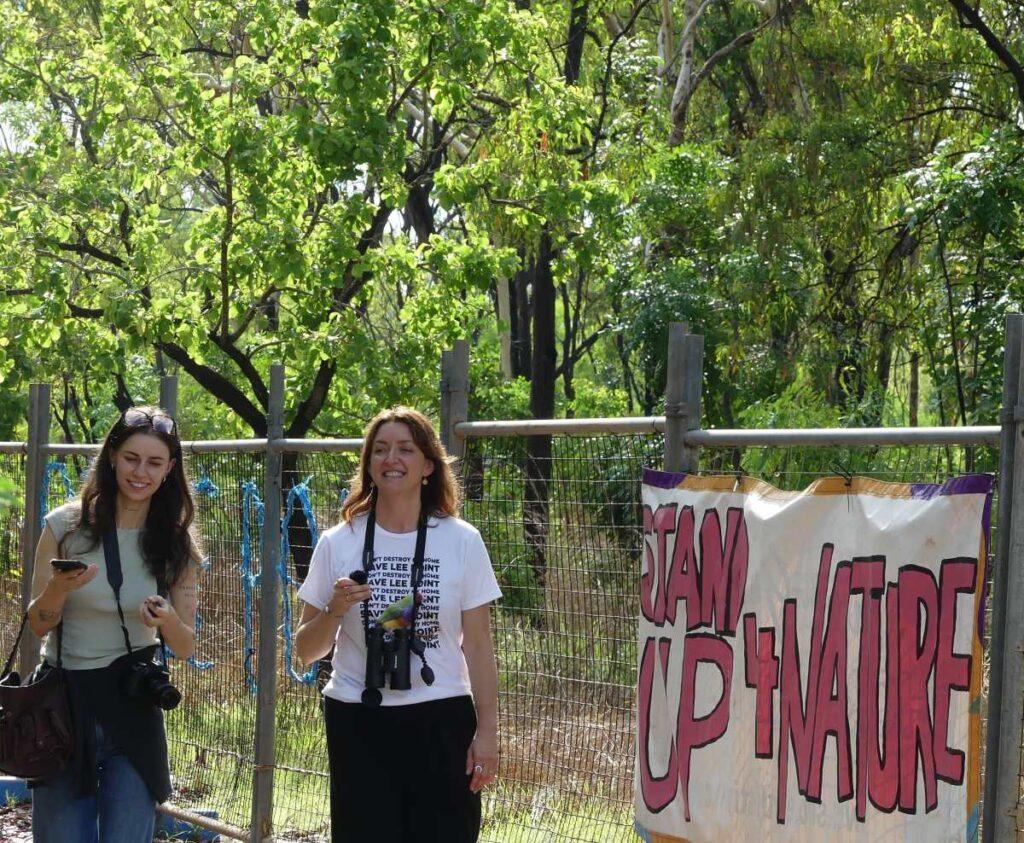
Fig 11. Senator Steph Hodgin-May (on right) with Amy Mya – 10 Nov 2025
FLP joined Greens Senator Steph Hodgin-May for an early morning Wilderness Walk. The walk recorded 41 bird species – see photos from the walk.
Enjoy the coming wet